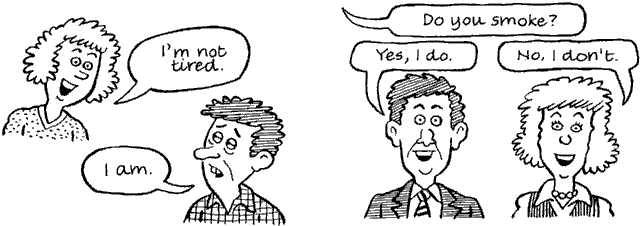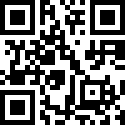Unit 37. I am /I don't etc.
 |
|
| She isn't tired but he is. (he is = he is tired) |
He smokes but she doesn't. (she doesn't = she doesn't smoke) |
|
- We use these verbs with other verbs (am going / has seen / can't come etc.) but you can also use them alone:
- ‘Please help me.’ ‘I'm sorry, I can't.’ (= I can't help you)
- ‘Are you tired?’ ‘I was, but I'm not now.’ (= I was tired but I'm not tired now.)
- ‘Do you think Ann will come?’ ‘She might.’ (= She might come.)
- ‘Are you going now?’ ‘Yes, I'm afraid I must.’ (= I must go)
- You can use these verbs in this way with Yes … and No …:
- ‘Have you ever been to Canada?’ ‘Yes, I have. / No, I haven't.’
- ‘Will Alan be here tomorrow?’ ‘Yes, he will. / No, he won't.’
- Use do/does for the Present Simple:
- She works very hard but I don't. (= I don't work very hard)
- ‘Do you enjoy your work?’ ‘Yes, I do.’
Use did for the Past Simple:
- ‘Did you and John enjoy the film?’ ‘I did but John didn't.’
(= I enjoyed it but John didn't enjoy it.)
- ‘Did it rain yesterday?’ ‘No, it didn't.’
- You cannot use the short forms 'm/'s/'re/'ve/'ll at the end of a sentence. Use the full forms am/is/are/have/will etc.:
![агентство Лангуст [переход на главную] Агентство Лангуст [переход на главную]](/pic/logo.gif)

